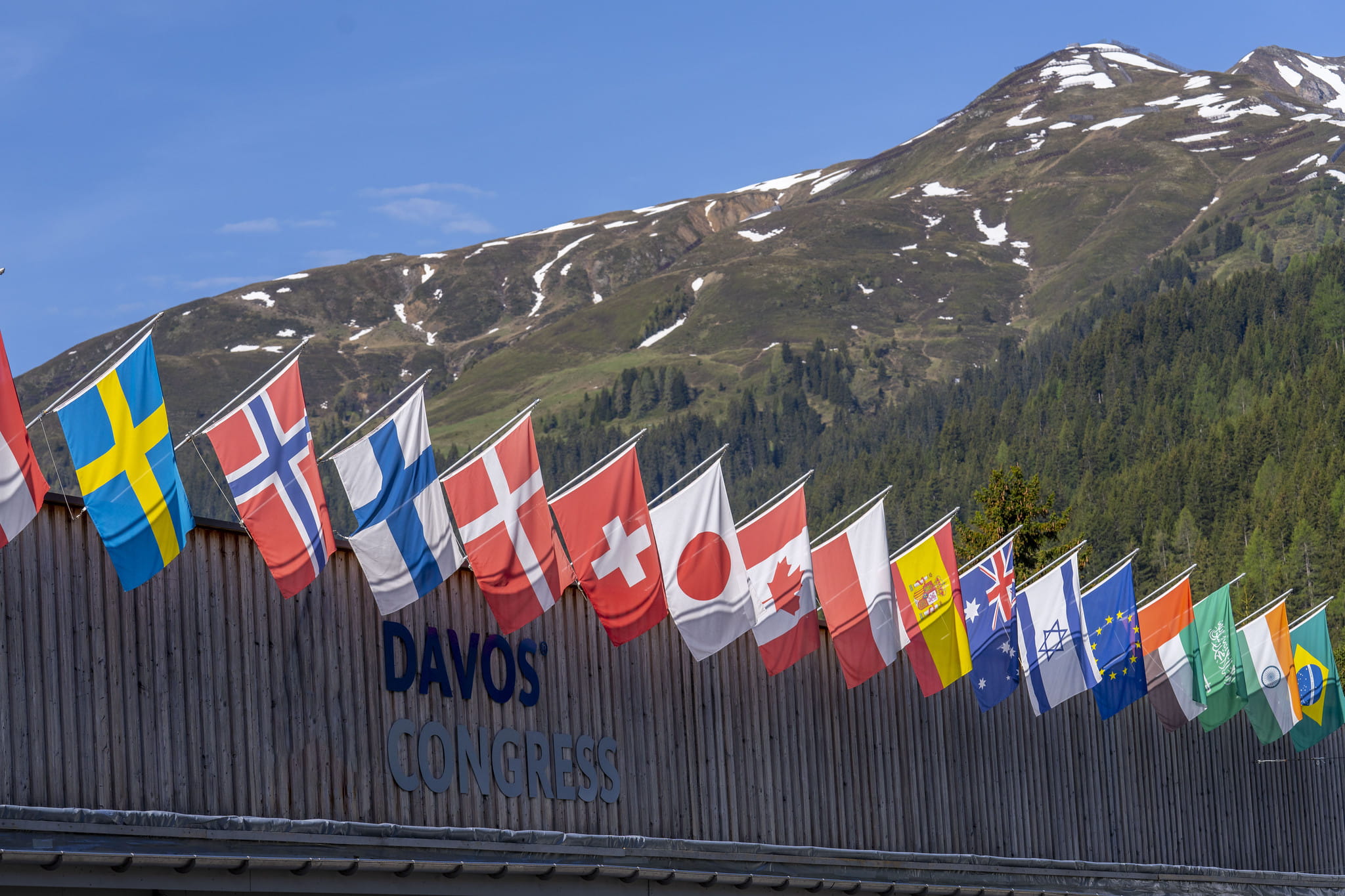
At the end of a meeting where the fault-lines in the global economy have been in sharp focus, here are the biggest work-related stories from Thursday’s discussions.
1. Getting refugees into the labour market
There are 80 million displaced people in the world and these figures are set to rise, with the potential for climate refugees, economic refugees and even more refugees fleeing conflict. In 2022, more than 6 million people have been displaced by war in Ukraine alone. When refugees arrive in a new country, they often face barriers to integration. “It’s always the same barriers,” said the Adecco Group’s Chief Sales and Marketing Officer Valerie Beaulieu: administration, language, the difficulty of transferring qualifications, and housing. Supporting refugees means implementing solutions large and small, from governments to grassroots. The private sector also has an important role to play, but how? “Go to your core business,” Beaulieu advised. “Don't try to do something that you don't know how to do.” In Adecco’s case, this meant building the Jobs for Ukraine platform in collaboration with NGOs to help connect Ukrainian refugees to opportunities, training and support for re-entering the labour market in their new homes. This enabled a wider mobilisation of the private sector. “We have over 1500 companies from the private sector offering jobs to refugees”, said Beaulieu. “Having a proactive and deliberate inclusion towards refugees is a condition to make it successful to integrate them.”
Watch the full World Economic Forum session with Valérie Beaulieu below.
2. Lessons learned from integrating Ukrainian refugees
War in Ukraine has spurred many organisations to take urgent action to integrate Ukrainian refugees into their workforces and societies. This has left some commentators wondering - why didn't this happen for refugees from Syria or Afghanistan? Learning lessons from the most recent refugee crisis is imperative in order to prepare for the next, said Adecco President Christophe Catoir. “Speed is a lesson learned from this crisis: we have to act fast, and we also need to encourage infrastructures permitting [us] to act fast,” he said. “One difference with Ukraine, is that the EU Commission gave [refugees] a special status that can allow them to them work directly.” In other cases, refugees have waited months or even years to access the job market, by which time their skills could be outdated. “Being a refugee is not a choice, and that understood, you can’t put additional rules or constraints for them,” Catoir added. This is true on humanitarian grounds, but also from an economic point of view, as many sectors lack workers. Fair access to work for all refugees ultimately comes down to improving the understanding of where refugees have come from and where they have the potential to go.

3. Valuing essential jobs in a digital economy
Much has been said in the past few days on the potential of digital when it comes to onboarding, upskilling and opening up access to jobs. But what about jobs that cannot be done remotely? From care work to construction, many such jobs were recognised as essential for society during the pandemic, but they are also essential economically. For social jobs in health, education and care, every dollar invested has a $2.3 return thanks to massive multiplier effects due to their positive impact on society. Around the world, essential sectors are facing worker shortages, just as the need for such workers is forecast to increase. So how can companies attract and retain new talent? Increasing pay is one approach, but there is more to it. As Alain Dehaze, Chief Executive Officer at the Adecco Group, put it: "Ultimately, I believe the right job is about more than salaries: Having a positive working culture, a strong purpose, flexibility, security, and work-life balance are key to attracting talent in today's world of work."

4. Innovating a path through crisis
The Adecco Group CEO, Alain Dehaze, ended the meeting with a note of hope about how solutions to global challenges can be found through innovation and collaboration. “Looking back at history, the way all of these crises have been solved is through innovation,” said Dehaze. “This innovation can be technological, but it can be also through new regulations or new organisations, so it is important that we focus on innovation to solve current pain points.” In the private sector, innovation means finding ways to let values define action, and working with allies across the board that believe in similar causes. Davos creates a framework for this to happen, bringing together stakeholders from different sectors to face common challenges. “The World Economic Forum is about improving the state of the world and the purpose of the Adecco Group is to make the future work for everyone, so we have a common purpose,” said Dehaze. “By being here at the World Economic Forum we can make this purpose reality.”



